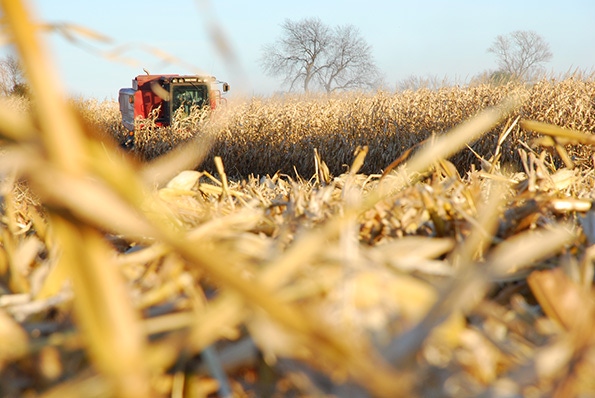Agricultural production costs down 8.8% in 2015 from 2014; beef now on two-way street between the U.S. and Brazil; biodiesel tax credit reform introduced; Extreme Eating Awards announced.

Agricultural production costs in 2015 totaled $362.8 billion, down 8.8% from 2014 according to the latest USDA Farm Production Expenditures report.
The two largest expenditures by farmers were animal feed ($58.5 billion) and farm services ($41.6 billion). Both declined by 8.2% from 2014. Livestock producers spent $182.6 billion, down 6.6%. Crop farmers spent $180.3 billion, down 10.9%. Per farm, the average expenditures total $176,181 compared with $191,500 in 2014, down 8.0%. In 2015, an average U.S. farm spent $28,408 on feed, $22,047 on livestock, poultry and related expenses, $20,202 on farm services and $15,443 on labor.
These estimates are based on USDA’s annual Agricultural Resource Management Survey conducted by the National Agricultural Statistics Service.
U.S. and Brazil open markets for each other’s beef
The United States and Brazil have agreed to allow U.S. beef and beef products to enter the Brazilian market for the first time since 2003. At the same time, fresh and frozen beef from Brazil may be exported to the United States.
Secretary of Agriculture Tom Vilsack says, “After many years of diligently working to regain access to the Brazilian market, the United States welcomes the news that Brazil has removed all barriers to U.S. beef and beef product exports. We are pleased that Brazil, a major agricultural producing and trading country, has aligned with science-based international standards, and we encourage other nations to do the same. Since last year alone, USDA has eliminated bovine spongiform encephalopathy-related restrictions in 16 countries, regaining market access for U.S. beef and pumping hundreds-of-millions of dollars into the American economy.”
Brazil is expected to begin shipping beef to the United States in 90 days and estimates they will export $900 million per year.
Biodiesel tax credit reform introduced
Sens. Chuck Grassley (R-IA) and Maria Cantwell (D-WA) have introduced legislation that will reform the biodiesel tax credit to a domestic production credit through 2019. The bill would make the tax credit available for the domestic production of biodiesel, rather than the current policy of a mixture credit available to the blender of the fuel. The Senators say the legislation would ensure that the United States is incentivizing the domestic industry rather than subsidizing imported biofuels.
Currently imports from Argentina, Indonesia, Singapore, the European Union, South Korea and others are estimated to exceed 1.8 billion gallons over 2016 and 2017. The Senators say, “In many cases, foreign biodiesel is already heavily subsidized, so U.S. taxpayers should not be providing a subsidy to such imports.”
Extreme Eating Awards announced
The Center for Science in the Public Interest has announced its 2016 Extreme Eating Awards. According to the CSPI, the winners are restaurant menu items that are high in calories, sodium and saturated fats. The CSPI says, “Unfortunately, these extreme meals are more like the rule, not the exception.” This year’s winners are:
► Uno Pizzeria & Grill: Whole Hog Burger (2,850 calories)
► Cheesecake Factory: Fried Chicken & Benedict Waffle (2,580 calories)
► Dave & Buster’s: Short Rib & Cheesy Mac Stack (1,910 calories)
► Sonic: RT 44 Grape Slush with Rainbow Candy (970 calories)
► Buffalo Wild Wings: Dessert Nachos (2,100 calories)
These chains also offer lower calorie menu items. Beginning May 2017, calorie counts will be mandatory on menus and menu boards at chain restaurants with 20 or more outlets.
About the Author(s)
You May Also Like



